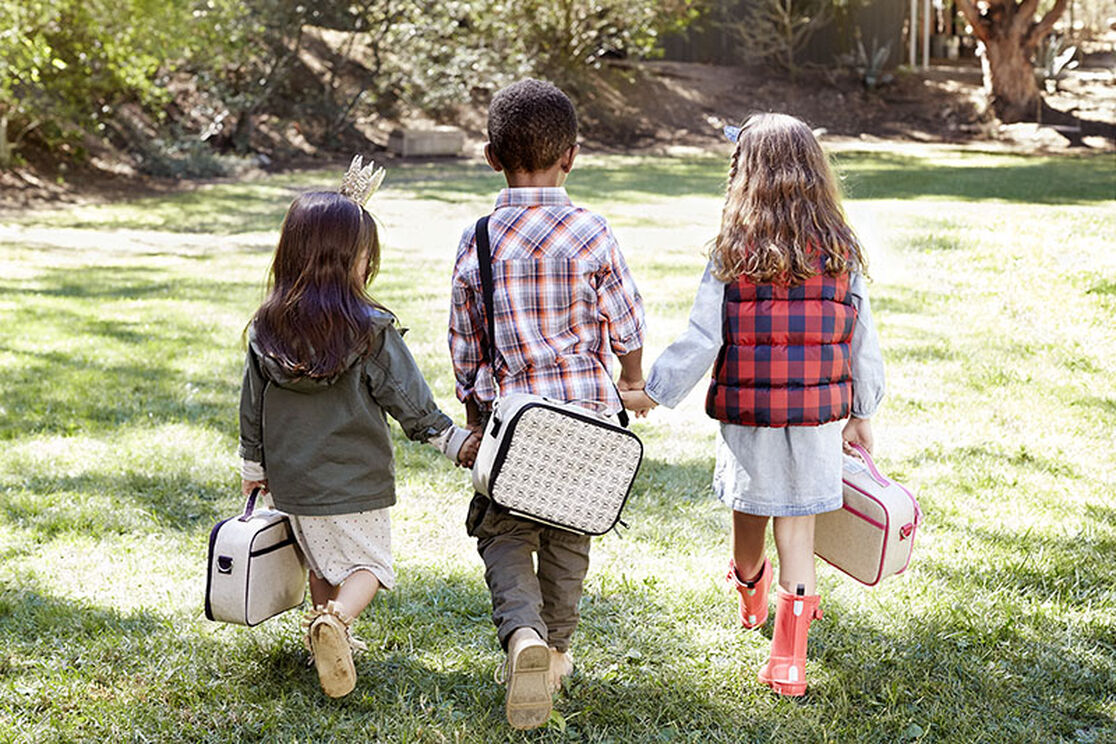Back to school season will be here before you know it! Check out some helpful steps to make sure your little ones are ready to rock the new year, courtesy of our friends, 3MD | THREE MOMMY DOCTORS™.
Summer is coming to an end and the new school year is right around the corner. While parents may secretly rejoice, there is much to do in preparation for the kids going back to school.
Here are some simple tips to help make the back to school transition a little easier:
Regular “shut-eye.”
- Your child has likely been staying up late and sleeping in. Ease them back into an early bedtime before the first day of school. Two weeks in advance is a good time to start.
- Establish a healthy sleep routine. Academic performance has been tied to the amount of sleep children get. The National Sleep Foundation recommends 10-13 hours for preschoolers 3-5 years of age, 9-11 hours for children 6-13 years of age and 8-10 hours for adolescents 14-17 years of age.
You are what you eat!
- Start the day with a nutritious breakfast.
- Become familiar with your school’s menu. Pack a lunch on the days the menu is not preferred. Incorporating nutritious snacks helps establish an overall healthy diet.
- Send plenty of water to keep them hydrated. Avoid soft drinks, as these are often full of sugar.
- Talk to your pediatrician to discuss if supplementing your child’s diet with a multivitamin would be beneficial.
Getting from Point A to B.
- No matter how you travel for school, activities, and just around town, getting safely to and from poses important safety concerns.
- When driving, make sure all passengers are wearing seat belts and riding in age/size appropriate car seats, according to the latest guidelines.
- Teen drivers have the highest risk of being involved in motor vehicle collisions. Remind them to always wear their seat belts, limit the number of passengers, and avoid using cell phones or texting while driving.
- If riding by bus, instruct your children to wait for it to come to a complete stop before boarding and exiting. Seatbelts should be worn if the bus is equipped with them, and remind children they should never move around the bus while in transit.
- Bicyclists should always wear helmets and bright-colored clothing to improve visibility. Make sure all riders understand the “rules of the road,” including riding on the right, using appropriate hand signals, and adhering to all traffic signals/stop signs.
- If children walk to school, map out a route with crossing guards at every intersection and remind them never to cross the street in between cars or in front of buses.
Doctor’s orders.
- Make sure all school medical forms are updated.
- If your child has any specific allergies, have an “allergy action plan” so that everyone knows what to do in the event of an allergic reaction. If your child has been prescribed an EpiPenⓇ, make sure the one on file at school is not expired.
- If your child takes any other prescribed medications during the day, clarify these with your child’s teacher and school nurse.
Catching cooties.
- Practice good hygiene skills such as washing hands frequently (especially before eating), and using a hand sanitizer when running water is not available.
- Teach your kids to always cover their mouths and noses with a tissue when coughing or sneezing. If no tissue is available, instruct them to cough/sneeze into their elbows - not their hands.
- If children do come down with an illness, help prevent spread by not sharing bath linens/towels with sick family members. Decontaminate toilets and sinks (including handles) after use, especially when diarrhea is present.
- Be sure to give your child plenty of clear fluids and rest. If your child has a fever over 100.4°F, consider keeping them at home until they are fever-free for 24 hours, without the use of any fever reducers.
In case of emergency...
- Review who are authorized persons allowed to pick up your child.
- Create a contact card of emergency contacts and have your child keep this in his/her backpack.
- Although never anticipated, it is vital to prepare and practice an emergency plan in the event of a disaster. Have a family huddle before the school year starts, to discuss your emergency plan, and how to reunite if a disaster occurs during school hours.
Always be sure your children sleep and eat well, travel safely, and are prepared for emergencies. By doing so, the transition from summertime to back to school should be a piece of cake. And now you can do your happy dance.
 ~ 3MD | THREE MOMMY DOCTORS™, three board-certified emergency physicians. Treating your kids like we treat our own.™
~ 3MD | THREE MOMMY DOCTORS™, three board-certified emergency physicians. Treating your kids like we treat our own.™
The information contained on this post is not intended nor implied to be a substitute for professional medical advice. It is designed to support, not replace, the relationship that exists between a patient and his/her physician. For specific medical advice, diagnoses, and treatment, consult your doctor.
We aim to provide you with the most honest and credible information possible. This article was reviewed for accuracy by The Honest Team and its internal technical experts.
blog_review_statement



